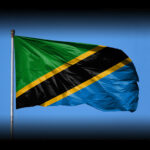Genocide Prevention Day in Australia is observed on December 9 each year. Genocide is a word that refers to acts of violence perpetrated against members of a racial, ethnic, national, or religious group. The goal is to annihilate the entire group. The term ‘genocide’ became widely used after World War II when the magnitude of the Nazi regime’s atrocities against European Jews became apparent.
History of Genocide Prevention Day
Raphael Lemkin coined the term ‘genocide.’ Lemkin was a Polish-Jewish solicitor who fled Poland because of Nazi rule and reached the United States in 1941. When Lemkin was a child, he was appalled to learn about the killing of thousands of Armenians by the Turks during World War I.Later, Lemkin set out to coin a name to define Nazi atrocities against European Jews during World War II. He incorporated the term into international law to prevent and punish violence against the innocent. Lemkin invented the term ‘genocide’ in 1944 by combining the Greek word ‘genos,’ which means ‘race’ or ‘tribe,’ with the Latin suffix ‘cide,’ which means “to slaughter.”Genocide Prevention Day in Australia was established to create awareness about the Genocide Convention (Convention on the Prevention and Punishment of the Crime of Genocide). The Genocide Convention is a collection of articles that establishes how to prevent genocide and what to do if a country is in danger of being a victim of genocide. The United Nations adopted the convention in 1948.The United Nations defined genocide to be an international crime in 1948; the word would eventually be used to define the crimes perpetrated during hostilities in the former Yugoslavia and Rwanda in Africa in the 1990s.Understanding the causes of genocide and genocidal conflicts is vital to preventing them. Genocidal conflict is founded on identity. Genocide is more likely to occur in communities where different racial, national, ethnic, and religious groups are involved in identity struggles.The first stage of preventing genocide is to identify the elements (discriminatory behaviors) that contribute to the violent treatment of a group of people. The second stage involves investigating strategies to reduce and eliminate these contributing factors. Since no country is completely homogeneous, genocide is a global problem.
Genocide Prevention Day timeline
Raphael Lemkin comes up with the term ‘genocide.’
The Genocide Convention is adopted by the United Nations.
Member States pledge to safeguard their populations from genocide, ethnic cleansing, crimes against humanity, war crimes, and incitement.
The Genocide Convention enters full effect on January 12, with over 142 nations accepting it.
Genocide Prevention Day FAQs
How many nations adopted the Genocide Convention?
The convention has grown in popularity since 1951 and received strong global support in over 140 countries.
When did the United States adopt the Genocide Convention?
Despite being one of the Genocide Convention’s initial signatories, it was not approved in the United States until 1988. Ronald Reagan, the U.S. President at the time, approved it despite some strongly opposing its effect on American sovereignty.
Were there other international tribunals apart from Nuremberg?
The United Nations Security Council set up the International Criminal Tribunal at the Hague, Netherlands, for the former Yugoslavia. It was the first international tribunal since Nuremberg and the first to have the mandate to prosecute the crime of genocide.
How to Observe Genocide Prevention Day
-
Research and share information
To defeat the enemy, you must know the enemy. Research the history of racial killings and share the information with people around you to help prevent recurrences.
-
Create awareness
We all have a responsibility to contribute to this fight. Pitch in by creating awareness about the ignored effects of genocide, such as the long-term effects on victims and their families.
-
Volunteer or donate
Several organizations exist to inspire a global effort for victims of genocide. You can volunteer at one of these organizations or donate resources.
5 Facts About Genocide That Will Blow Your Mind
-
A shortcut to poverty
Genocide results in widespread poverty, as was seen in Nazi-era Germany.
-
Infrastructural collapse
Genocide creates a lack of infrastructure when people cannot afford necessities or are unable to contribute to the tax pool.
-
Poverty leads to increased crime
Regions affected by poverty will see an increase in crime.
-
Broken educational systems
Genocide affects the efficiency of available infrastructure, which inevitably affects the educational system, limiting access to education.
-
No hands on deck
Genocide diminishes the workforce, disrupting economic stability.
Why Genocide Prevention Day is Important
-
Global intervention
Genocide Prevention Day inspires global action to help surviving victims. It serves as a platform for strategizing and taking action to prevent future cases of genocide.
-
Driving policies and punishing offenders
This observance is the ideal opportunity to put pressure on policymakers to find lasting solutions to the issues of genocide. It is also a rallying cry for offenders to be identified and punished.
-
Honoring the victims
Genocide Prevention Day is a time to reflect and remember those who have lost their lives to racial killings. It is also a time to appreciate the efforts of those who fought and died for a better world.
Genocide Prevention Day dates
| Year | Date | Day |
|---|---|---|
| 2022 | December 9 | Friday |
| 2023 | December 9 | Saturday |
| 2024 | December 9 | Monday |
| 2025 | December 9 | Tuesday |
| 2026 | December 9 | Wednesday |























